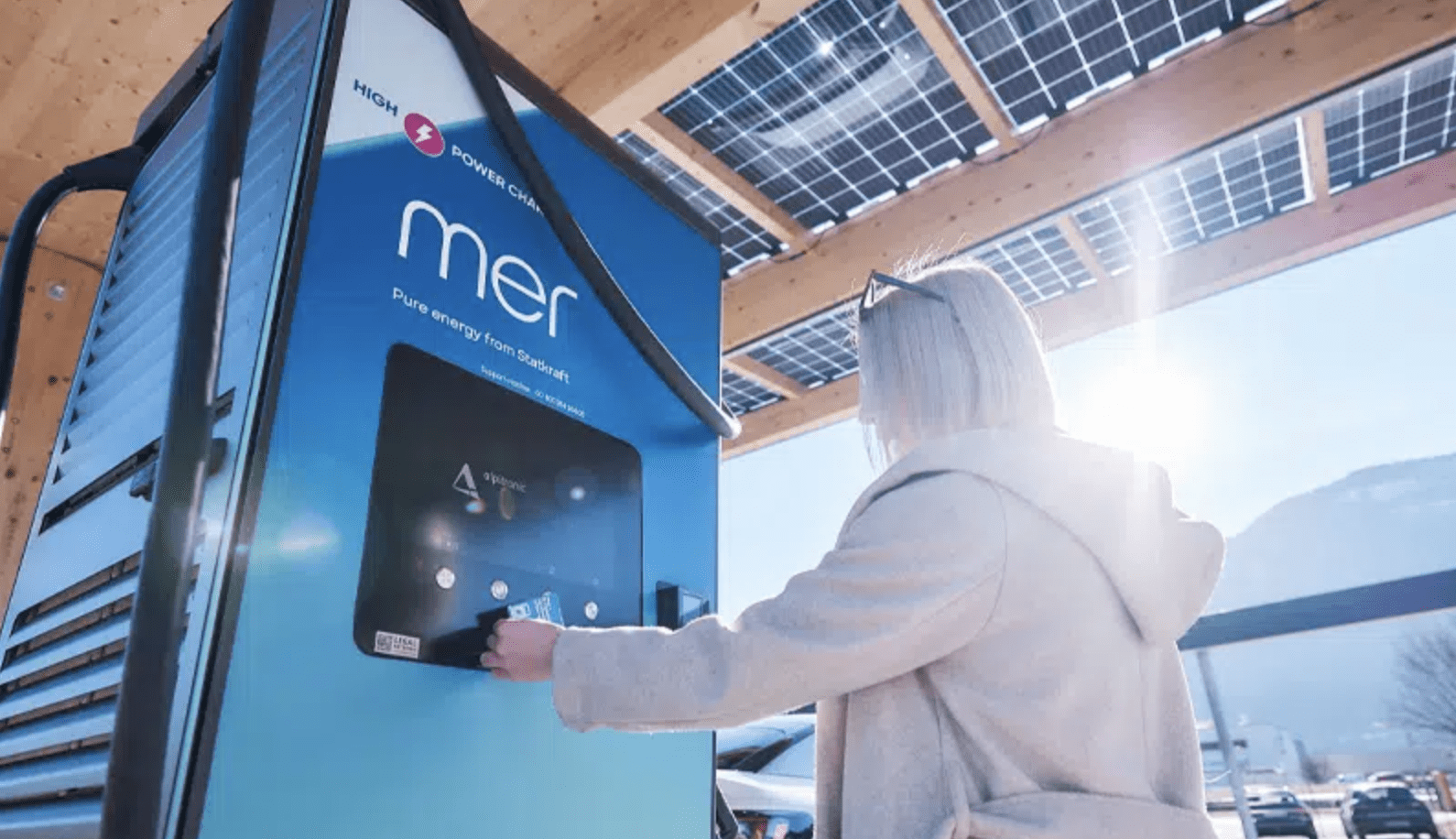As electric vehicles (EVs) continue their steady rise in popularity, the infrastructure to support them is evolving in tandem. At the forefront of this shift is Mer Charging, a company committed to delivering a seamless and sustainable EV charging experience. Speaking to Liz Warren, interim Director of Public Charging, and Tim Johnson, Head of Sales for Public Charging, both at Mer Charging, the company’s vision for the future becomes clear: a greener, more connected, and accessible world for EV drivers.
A tale of two careers
Liz Warren’s path to Mer Charging is as diverse as the energy landscape she now navigates. “I started off as a trading analyst on a number of trade floors for different energy companies,” she explains. Over the years, she transitioned into roles that deepened her experience in operational customer service and finance, eventually leading her to oversee sales and operations at Mer. Reflecting on her career trajectory, Warren shares: “I’ve been in the company for about five years now… and now obviously I’ve taken on the role of director.”
“We want people to come to your stores, drink your coffees, and buy from the shops that are on your locations.” – Liz Warren
Tim Johnson’s journey, on the other hand, began far from the EV world. “I actually started my career as a car mechanic for petrol and diesel engines,” he recalls. Following stints as a service advisor and car salesman, Johnson eventually transitioned into EV charging at a pivotal time for the industry. “It was Liz who reached out to me on LinkedIn… and that was, I think, nearly four years ago,” he says with a smile. Together, they’ve become key players in Mer’s expansion in the UK market.
Their combined expertise forms the backbone of Mer Charging’s success. Warren’s analytical background and operational insights complement Johnson’s practical knowledge and sales acumen, enabling the company to navigate a rapidly evolving market. “It’s been a fascinating journey,” Warren reflects, “seeing how the EV industry has transformed and knowing we’re contributing to such a vital part of the future.”
Mer Charging’s unique value proposition
Mer Charging is more than just an EV infrastructure provider; it is a symbol of sustainability, innovation, and partnership. The company, owned by the Norwegian government through Statkraft, is part of a “lovely green circle,” as Johnson describes it. “The energy being generated by the company that owns us is then going to a company that’s also owned by them, that’s then distributing that energy to us, and we’re putting it into the cars,” he explains. This integrated approach ensures that all the energy used in Mer’s EV chargers is 100% renewable.
“Consumers are going to expect to see a lovely array of charging points with availability and an easy-to-use charger.” – Liz Warren
Statkraft’s Scandinavian roots are an undeniable asset. “Norway is well ahead of the curve when it comes to the penetration of EVs,” says Warren. Drawing lessons from their success, she notes that while the UK lags behind, it is rapidly catching up. “We’ve grown from 200,000 BEVs [battery electric vehicles] on the road to 1.2 million now. That sounds great, but there are 33 million passenger vehicles on the road,” she adds, highlighting the immense potential for growth.
This growth is underpinned by the company’s dedication to renewable energy and sustainability. “Our commitment isn’t just to provide chargers,” Johnson emphasises. “It’s about creating a cleaner future for everyone. Every charge made through our network is a step toward reducing emissions and protecting the planet.”
The role of retail in EV adoption
One of Mer’s primary focus areas is retail, where the intersection of dwell time and charging infrastructure creates a perfect storm of opportunity. “Retail parks are genuinely ideal,” says Johnson. “You’ve already got this dwell time. Let’s make use of that. Let’s drive more people to that site.”
Warren expands on this, emphasising the synergy between retail spaces and charging infrastructure. “We want people to come to your stores, drink your coffees, and buy from the shops that are on your locations. And we want people to charge,” she says. The value proposition for retailers is clear: EV chargers can increase footfall, enhance ESG (environmental, social, and governance) credentials, and create an additional revenue stream.
However, implementing EV infrastructure is not without its challenges. Johnson acknowledges that “it does take a long time to get those contracts through in this market”. From negotiating leases to establishing grid connections, the process can take up to two years. Yet, the benefits far outweigh the hurdles. “We’re not coming to you going, ‘It’s going to cost you £2.5 million to put these chargers in,’” he explains. “What we’re coming to you and saying is, ‘If we can lease the space, we will then give you some rent for that.’”
This innovative approach allows Mer to partner with a wide range of retail spaces, from large shopping centers to independent stores. “It’s about finding solutions that work for everyone,” Warren says. “Every site is different, and we tailor our offerings to match the specific needs of each partner.”
“Our commitment isn’t just to provide chargers; it’s about creating a cleaner future for everyone.” – Tim Johnson
Early adoption and consumer behaviour
The shift to EVs represents not just a technological change but a cultural one. “In Norway, the car is more of a means to an end,” Johnson observes. “Whereas I think in the UK there is a real love affair. We love our cars.” This distinction underscores the importance of creating an infrastructure that aligns with UK consumer expectations.
One key aspect of this shift is the “psychology of how we behave now,” as Warren puts it. People want efficiency and convenience. She envisions a future where charging is as simple as plugging in a car and walking away. “Buying dinner for that evening, buying some clothing for the kids… this is the sort of thing that I want, and I think the mass market wants to do as well,” she adds.
Johnson echoes this sentiment, drawing a parallel to the evolution of smartphone charging. “It’s no longer going to be ‘I’m empty, I go and fill up,’” he explains. “It’s, ‘Oh, actually, I could take a charge whilst I’m here.’” Opportunistic charging, he believes, will become the norm, transforming how and where people think about refuelling.
This cultural shift is already underway, driven by increased awareness and education about EVs. “When I started in the industry, I had to explain the basics of electric vehicle charging,” Johnson recalls. “Now, most people understand it, even if they don’t own an EV yet. That’s a huge step forward.”
“We’re not just building chargers; we’re building the future.” – Tim Johnson
Building for the future
Looking ahead, Mer Charging’s vision is ambitious yet attainable. “Consumers are going to expect to see a lovely array of charging points with availability and an easy-to-use charger,” says Warren. Integration with retail partners will enhance the customer experience, offering everything from loyalty points to seamless app-based interactions.
Johnson adds that the focus will be on “future-proofing” sites to accommodate the growing demand. “We need an awful lot more charging infrastructure in order to meet that demand,” he emphasises. This includes catering to fleets and last-mile delivery vehicles, which represent a significant and growing segment of EV users.
Mer is also exploring technological advancements to improve the charging experience. “Smart chargers, integrated apps, and data-driven insights will play a big role in the future,” Warren says. “We’re investing in innovations that will make charging faster, easier, and more accessible for everyone.”
Despite the challenges, both Warren and Johnson remain optimistic. “Transport is a quarter of the UK’s greenhouse gas emissions,” Warren notes. “Something has to change. EVs are brilliant for that.”
As the UK accelerates toward a greener future, Mer Charging is leading the charge—quite literally. By integrating renewable energy, leveraging retail partnerships, and anticipating consumer needs, the company is setting a standard for what EV infrastructure can and should be. For Warren and Johnson, the mission is clear: to create a world where charging your car is as simple and sustainable as the vehicles themselves.



















